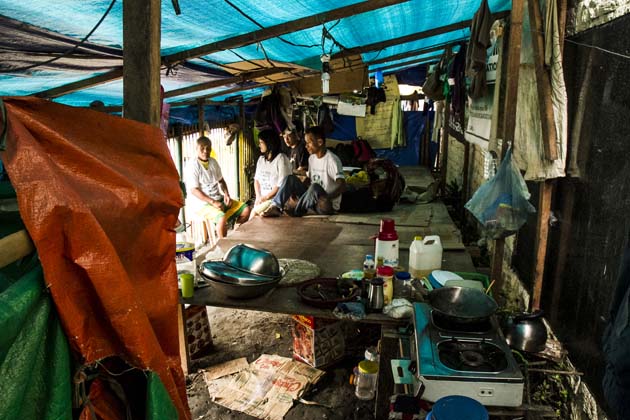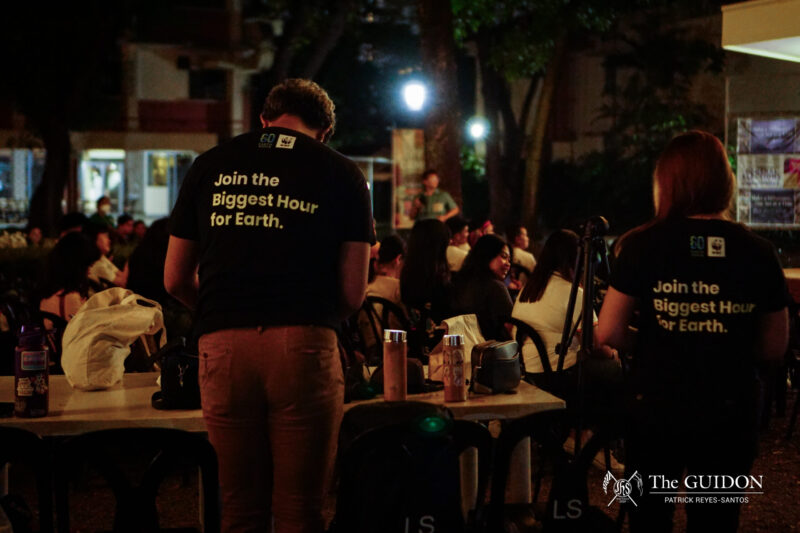THE AURORA–PACIFIC Economic Zone (Apeco) is the brainchild of Senator Edgardo Angara and his son, Lone District of Aurora Representative Juan Edgardo Angara. It is expected to result in billions of pesos of investments for the country and contribute to the economic development of Aurora, a third-class province.
Since 2009, it has been in full swing, with ongoing construction of facilities, including a hotel, an airport and a seaport. The three billion-peso project claims that the eco-free port will help the economy tremendously, partly thanks to its status as the country’s first Pacific free port project.
Land grabbing cited
Past the Apeco construction sites, however, another tale defines the narrative.
In an interview with The GUIDON, Casiguran farmer Elmer Gonzales, 54, said that they see Apeco as a threat. “Ang Apeco po ay itong programa ng gobyerno diumano na gustong magtayo ng mga para sa investor… natatamaan naman ho ‘yung aming hanapbuhay na sana po ay pinagkakakitaan po namin. (Apeco is a government program that is supposed to establish an investor-friendly environment, but our own livelihoods are impaired.)”
The farmers have marched to the Department of Agrarian Reform (DAR), asking for help in protecting their land. “Ang nais po namin na iparating sa gobyerno… ‘yung aming sinasaka sa reservation ay i-cover na ho sa CARP sapagkat matagal na ho kaming nakatira ho at nagsasaka doon. (We are asking the government to get the reservation we’ve been farming covered by CARP [Comprehensive Agrarian Reform Program] because we have lived in and tilled that land for a long time),” said Gonzales.
What Gonzales called the reservation is a tract of land that his community has utilized for more than 50 years. However, the farmers do not possess formal land titles.
The free port, since the 2009 Apeco law, has gained the power to acquire “any private property adjacent to the ecozone for consolidation or right of way.” This has led to accusations of land grabbing, allegedly evident in the expansion of the original 500-hectare zone to 12,923 hectares. This has been reported to have displaced thousands of farmers, fisher folk and the indigenous Dumagat.
While the project promises to create jobs, Gonzales remains unconvinced. “Alam po namin iyong mga mayroon nang pinag-aralan ang makakapasok po rito; alam naman po natin na may qualification po ang isang trabahador. Kaya kami ay walang kasiguruhan doon sa sinasabi nilang trabaho para sa amin. (We know that only those with education can enter [those jobs]; we know that a worker must have qualifications. So there is no certainty about the jobs they say they have for us.)”
Raul Socrates Banzuela, national coordinator of Pambansang Kilusan ng mga Samahang Pangmagsasaka (Pakisama) and part-time development studies lecturer in the Ateneo, said that the Apeco issue is just one of the seven other similar cases Pakisama is handling, many of which involve major land grabbing incidents.
Banzuela said that in the case of Apeco, 3,000 families of small farmers, fishers, and indigenous peoples are on the path to losing their livelihood and cultural heritage. He explained that the issue has already divided them “as communities, as pro- vs. anti-Apeco—a situation being exploited by Apeco proponents.”
When asked if something can still be done, he said that strong public opinion in support of the cause of the farmers may help “push [President Aquino] to rethink his current support for the Angaras and the Apeco project.”
In an email interview with The GUIDON, Rep. Angara addressed these claims. “With the projected influx of local and foreign investments in the ecozone, its presence in the province would jumpstart the development in the area and provide jobs and sources of income to my constituents,” he said.
“I understand the concerns of some sectors, particularly those in farming and fishing, but I would like to reassure them that their welfare [is] given utmost consideration in its implementation,” Angara added.
Assistance from Ateneo
Members of the Ateneo community, particularly the Sanggunian and other concerned groups, have been extending assistance to the displaced Casiguran residents.
Christian Union for Socialist and Democratic Advancement (Crusada) Party Premier Brian Llamanzares said that the farmers might not be able to adjust to the changes in their way of life brought about by Apeco. On the Ateneo community’s involvement, he added that the farmers did not have anyone to defend them.
“From what I understand, the Sanggunian is working on a project in order to allow the Angaras to come to school to talk about Apeco with the Jesuits and the student representatives,” said Llamanzares, who hopes to set up a forum where the farmers and the students can engage each other, in order to increase awareness about the issue.
Ateneo students have also extended assistance to the farmers in the form of donations, especially after the August floods. Crusada called for tarpaulin donations, which the party used to repair the farmers’ tents at their camp site in front of the DAR building.
In the end, the impact of Apeco remains its human cost. The farmers are now awaiting further action that would recognize their claim to land ownership.
The displaced communities’ concerns are encapsulated well in the questions Gonzales raised during his interview with The GUIDON: “Kung [ang aming lupa] po ay kinuha, papaano na po kami? Paano na ang aming pamilya? Paano na ang aming hanapbuhay? (If [our land] is taken, what will happen to us? What about our families? What will happen to our livelihood?)”




